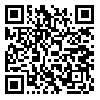Volume 2, Issue 3 (Summer 2014-- 2014)
PCP 2014, 2(3): 201-210 |
Back to browse issues page
Download citation:
BibTeX | RIS | EndNote | Medlars | ProCite | Reference Manager | RefWorks
Send citation to:



BibTeX | RIS | EndNote | Medlars | ProCite | Reference Manager | RefWorks
Send citation to:
Mojallal M, Khosrojavid M, Pakzad F, Ghanbari M. Early Maladaptive Schemas, Body Image, and Self-Esteem in Iranian Patients Undergone Cosmetic Surgery Compared with Normal Individuals. PCP 2014; 2 (3) :201-210
URL: http://jpcp.uswr.ac.ir/article-1-177-en.html
URL: http://jpcp.uswr.ac.ir/article-1-177-en.html
1- Department of Psychology of the Faculty of Humanities, University of Guilan, Rasht, Iran. , mahmojallal@gmail.com
2- Department of Psychology of the Faculty of Humanities, University of Guilan, Rasht, Iran
2- Department of Psychology of the Faculty of Humanities, University of Guilan, Rasht, Iran
Abstract: (7068 Views)
Objective: The interest in cosmetic surgery has increased dramatically during recent years and psychologists have focused on the associations of this interest. The present study aimed to compare cosmetic surgery patients and normal individuals in terms of their early maladaptive schemas (EMSs), body image (BI), and self-esteem, as well as investigate the relationships of EMSs and self-esteem with BI.
Methods: 120 university students (60 patients with cosmetic surgery and 60 normal individuals) completed the Short Form of the Young Schema Questionnaire (YSQ-SF), Multidimensional Body-Self Questionnaire (MBSRQ), and Cooper-Smith Self-Esteem Test (CSEI). To investigate data, multivariate analysis of variance, Pearson correlation coefficient test, and multiple regressions were administered. SPSS-20 software was used for statistical analysis.
Results: Groups study showed significant differences in their appearance evaluation. Findings indicated significant correlations between domains of disconnection and rejection, impaired autonomy, and self-esteem with BI. Also, results indicated that EMSs and self-esteem were the significant predictors of BI.
Conclusion: Cosmetic surgery can improve one’s appearance, but to gain a comprehensive understanding of its causes and outcomes, we must consider various social and psychological factors and their interactions.
Type of Study: Original Research Article |
Subject:
Cognitive behavioral
Received: 2014/02/11 | Accepted: 2014/06/6 | Published: 2014/07/1
Received: 2014/02/11 | Accepted: 2014/06/6 | Published: 2014/07/1
| Rights and permissions | |
 |
This work is licensed under a Creative Commons Attribution-NonCommercial 4.0 International License. |





